How to build a great ‘About Us’ page that connects with your guests
When you’re running a tourism business, it can feel like you’re the guide, the cleaner, the bookkeeper, the marketer, the problem solver, and sometimes the counsellor; all in one day. With so much on your plate, the “About Us” page on your website might not seem like a priority.
But here’s the thing: your About Us page is one of the most important parts of your website. It’s often the second most-visited page after your homepage. It’s where your potential guests decide if they trust you, if they like you, and if they’re going to book with you. Plus, it is very important for AI.
So let’s break down how to build an About Us page that doesn’t just tick boxes, but actually tells your story, inspires confidence, and helps guests imagine themselves booking with you.
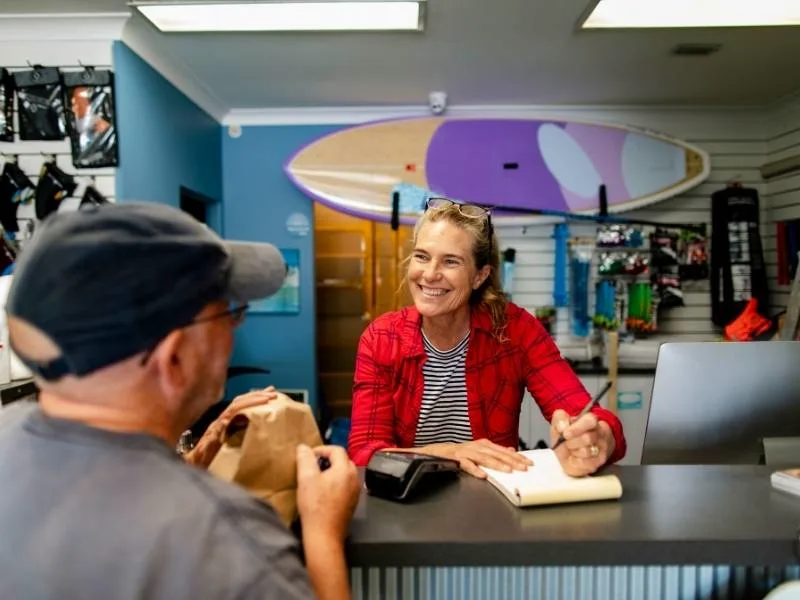
Why your ‘About Us’ page matters
Travellers aren’t just buying a bed for the night or a ticket for a tour. They’re buying an experience. They want to know who is behind that experience and why they should spend their precious holiday time (and money) with you instead of someone else.
Your About Us page gives them that assurance. Done well, it:
- builds an emotional connection
- shows what makes you different
- highlights your credibility and professionalism
- showcases your products/services
- nudges people towards booking/purchasing with you
Why schema matters on Your ‘About Us’ page
Your About Us page isn’t just for people: it’s also for search engines and AI. Schema markup (the hidden structured data on your page) helps Google and AI tools understand who your business is, where you are, and what you offer.
Adding Organisation or LocalBusiness schema to your About Us page means search engines can confidently connect your business name with your physical location, website, and social media profiles. That makes it easier for your business to show up when someone asks ChatGPT, Gemini, or Google:
“Who runs the kayak tours in Agnes Water?”
or
“Which tourism businesses near Bundaberg are eco-certified?”
With the right schema in place, AI can accurately identify your business as a trusted, local authority and include you in its short list of recommendations (usually only 4–5).
Quick Tips:
- Use LocalBusiness schema if you have a physical location.
- Include your logo, address, phone number, and business type.
- Add sameAs links to your verified social media pages.
- If you’re using WordPress, plugins like Rank Math or Schema Pro make this easy.
By adding schema to your About Us page, you’re giving AI and search engines a clear signal: “This is who we are, and here’s why we’re credible.”
What to include on your about us page
1. A warm introduction
Start with a short, friendly intro: who you are, what you offer, and where you’re located. Think of it as the first handshake.
Example: “We’re Penneshaw Penguin Centre, a small team of passionate locals helping travellers discover the magic of Kangaroo Island’s growing penguin colony.”
2. Your story
Tell people how you started and why. Was it a lifelong dream? A family tradition? A passion for sharing your region? Keep it real and short. No corporate jargon. Guests love knowing they’re supporting humans not faceless businesses.
3. Your mission and values
What matters to you? Sustainability? Local community? Outstanding service? Spell it out. This shows travellers what you care about and helps you attract guests who share those values.
4. Showcase your products and/or services
Briefly showcase your products and services with a small personable description and ensure you link to these products/services pages on your website. You want to appear proud of what you’ve built and reflect this in your wording.
5. Put faces to your name
Even if it’s just you and your partner, include photos and short bios. Guests love to know who’ll greet them at reception, guide them down the river, or bake them scones. Keep bios human, mention hobbies, quirks, or local knowledge.
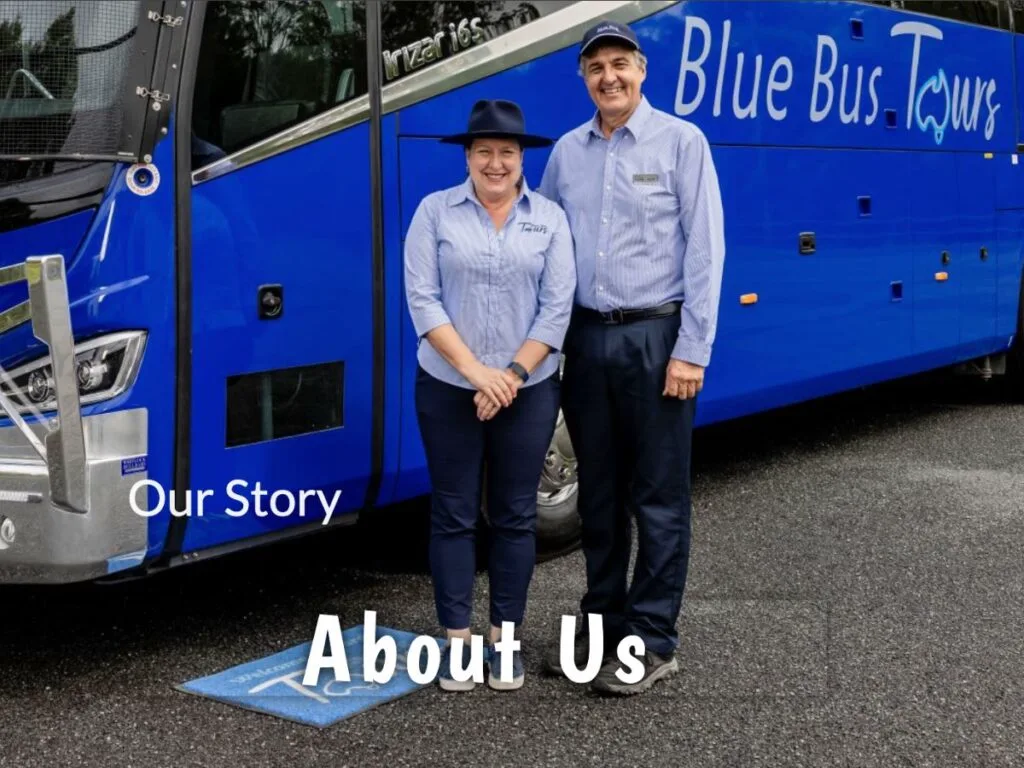
6. Proof and credibility
Show off your trust badges awards, accreditations, memberships, eco-certifications. These are subtle but powerful signals that you’re legitimate and trusted. Katherine Outback Experience have a great rolling showcase of accolades above the footer on the home page of their website.
7. Guest voices
A couple of guest testimonials woven in add instant credibility. Nothing sells your experience better than real people saying how much they loved it.
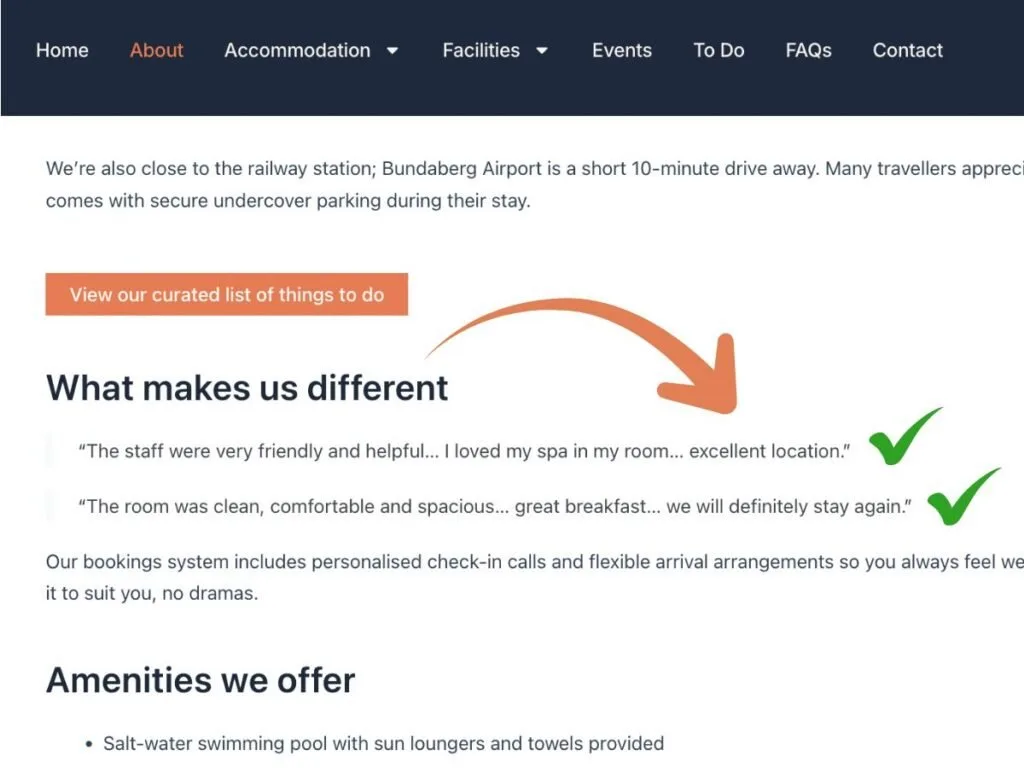
8. Who your ideal guest is
Try a “you’ll love us if…” statement. This helps people self-select and picture themselves enjoying your experience.
Example: “You’ll love us if you enjoy small group adventures, friendly local guides, and time to explore at your own pace.”
9. Community connections
Show how you’re part of your community, whether that’s supporting local suppliers, partnering with cultural groups, or donating to local causes. Guests love businesses with heart.
10. Accessibility and inclusivity
Include a sentence about how your business supports diverse needs. Even if you’re just starting this journey, guests appreciate the transparency and it helps your SEO.
11. Engaging visuals
Use photos of people enjoying your tours, team shots, and scenery. Avoid empty rooms and sterile stock images. Show your business in action.
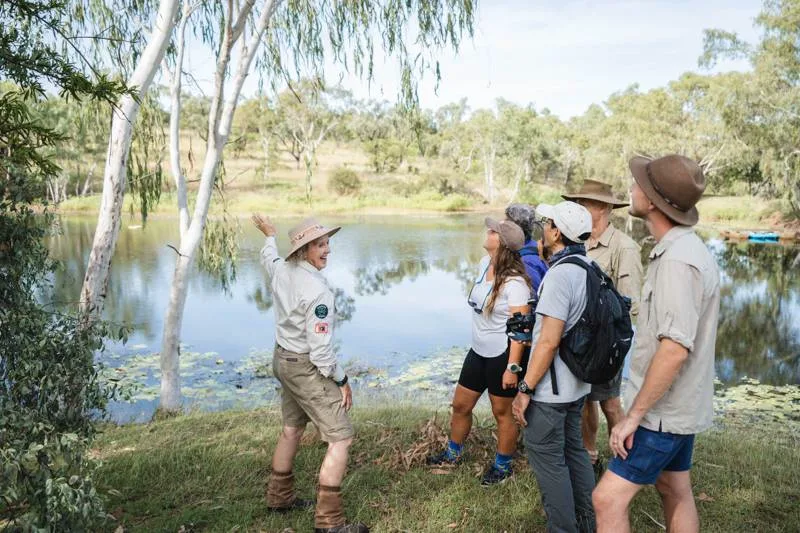
12. A clear call to action
End the page with a next step. Whether that’s Book Now, Check Availability, or Contact Us — don’t leave guests hanging.
13. Trust elements
Include secure booking icons, flexible cancellation notes, or links to policies. These small touches reduce booking hesitation.
14. Keep it fresh
Update regularly: add new awards, new staff photos, or change up your story if your business evolves. A “last updated” note can reassure travellers you’re active and reliable.
Suggested layout
Here’s a simple layout you can follow to structure your page:
- Hero section – headline, friendly intro, and one strong image
- Our story – why you started and what drives you
- Mission and values – 3–5 short points that matter to you
- Meet the team – photos and bios
- Why travellers love us – testimonials + “you’ll love us if” statement
- Your products and services – brief description with linked text to relevant pages
- Proof and credibility – logos, awards, certifications
- Community connections – suppliers, charities, cultural ties
- Accessibility and inclusivity – short, honest statement
- Call to action – bold button (Book Now / Contact Us / Follow Us)
- Trust elements – policies, secure booking, last updated date
Inspiration for small operators
Remember: your About Us page doesn’t have to be perfect, but it should be genuine. Your guests aren’t looking for polished corporate speak. They’re looking for people who are passionate, welcoming, and trustworthy.
Start with the basics: a friendly intro, a photo of yourself, and a call to action. Add the other sections as you go. Even a simple, heartfelt About Us page is infinitely better than a blank one.
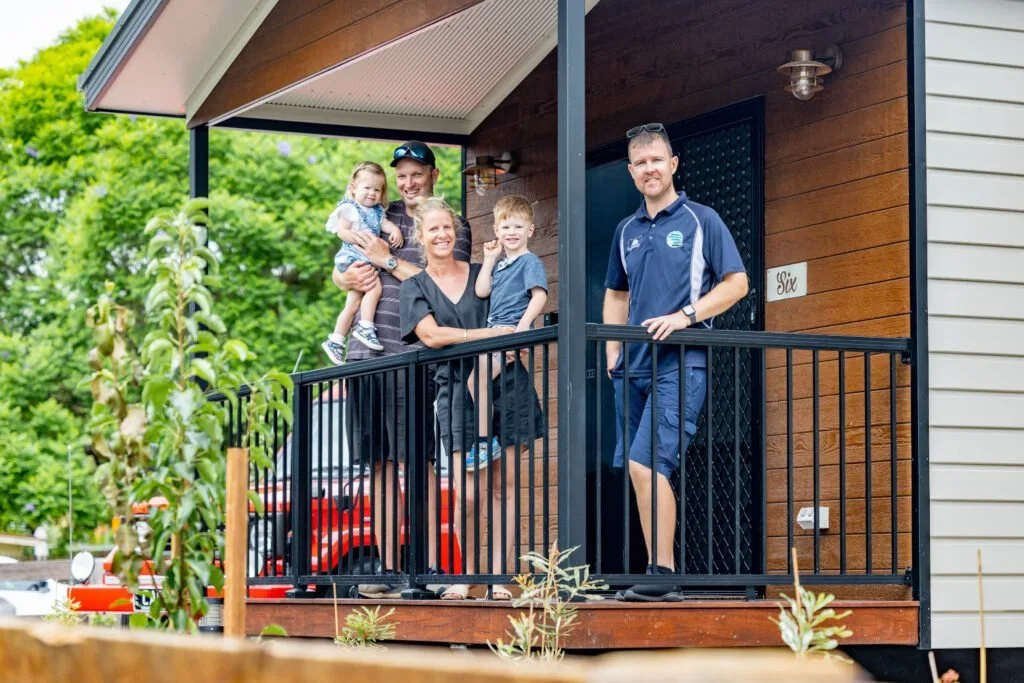
Final tip
Your About Us page isn’t just about you. It’s about showing your guests why you’re the right choice for their holiday. Make it warm, make it clear, and make it easy for them to book.
Frequently asked questions
How does schema / structured data benefit my About Us page
Schema helps search engines and AI understand your business: who you are, where you are, what you offer, and your social profiles. That helps you get included in AI-generated recommendations, map listings, or knowledge panels.
What key elements should be included in a standout About Us page
A great About Us page includes your origin story, mission and values, your team (or faces behind the brand), proof of credibility (testimonials, awards or media), what makes you different, and a clear call to action.
How far back should I go in telling my story?
You don’t need your entire personal history; focus on the moments that shaped the business, the turning points, and lessons that speak to your values and purpose. Keep it relevant, compelling and not overly long.
How do I strike the right balance between storytelling and SEO/AI structure?
Tell the story first, but also weave in strategic keywords, headers, and schema so that both humans and AI (search engines, chatbots) understand who you are, what you do, where you are, and why someone should trust and choose you.
Can including your team or behind-the-scenes content actually help your business?
Yes! Showing real people and processes humanises your brand, builds connection, trust and authenticity. It also gives AI and search engines context (e.g. names, roles, credentials), which helps in richer search results (e.g. knowledge panels). You can also display blog posts that are categorised as ‘behind the scenes’ if you have some!
When should I update my About Us page and why?
Update it whenever something meaningful changes: new milestones, new team members, shifts in direction, awards, or refreshed branding. These updates keep it current for your audience and signal to search engines / AI that the content is fresh and relevant.
